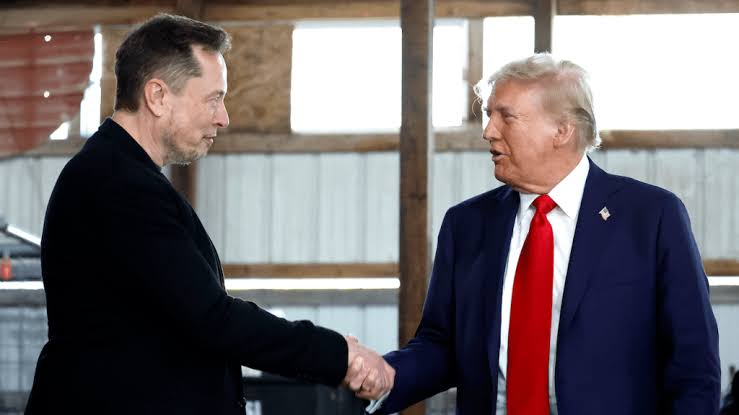The U.S. President-elect Donald Trump has appointed Elon Musk, CEO of Tesla and SpaceX, to lead a newly established Department of Government Efficiency (DOGE) in his incoming administration.
American entrepreneur and Trump’s fellow Republican, Vivek Ramaswamy, will join Musk. Together, they will tackle inefficiencies and waste within federal agencies.
Trump made the announcement in a statement posted on his X account early Wednesday, emphasising the need for modernisation within government agencies.
“Elon Musk has a proven track record of transforming industries and pushing the boundaries of technology,” Trump said Tuesday. “We need that kind of vision in our government to streamline processes and reduce waste.”
Read also: Bitcoin jumps to $89,000 following Trump’s re-election triumph
The establishment of DOGE
The Department of Government Efficiency, which shares its acronym with the cryptocurrency Dogecoin often promoted by Musk, was initially pitched by the tech mogul in a seemingly lighthearted manner. Musk had suggested that the Shiba Inu dog breed, the mascot of Dogecoin, would also serve as the mascot for the new department. He shared AI-generated images of himself as the department’s head on social media platforms.
Goals of the Department of Government Efficiency
The primary objective of DOGE is to eliminate wastage of taxpayers’ money and “drain the swamp” of inefficiencies within federal agencies. Trump stated that Musk and Ramaswamy would work together to “dismantle government bureaucracy, slash excessive regulations, and cut wasteful expenditures.”
“This will send shockwaves through the system, and anyone involved in government waste, which is a lot of people!” Musk remarked during the announcement.
Read also: Elon Musk’s xAI enhances Grok with image understanding capabilities
Reactions to the appointment
The appointment has garnered mixed reactions from political analysts and the public. Supporters argue that Musk’s entrepreneurial spirit could bring much-needed innovation to government operations. Critics, however, express concerns about his lack of experience in public service and potential conflicts of interest given his extensive business dealings.
Trump’s decision to appoint Elon Musk as head of the US government’s efficiency department represents a bold step towards modernising public administration.
The administration aims to create a more efficient and effective government by harnessing Musk’s expertise in technology and innovation. As this initiative unfolds, monitoring its impact on governance and public perception will be crucial.










